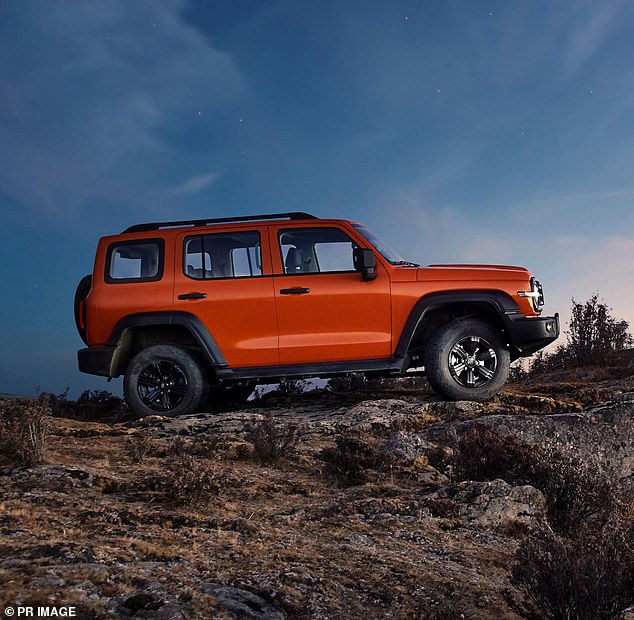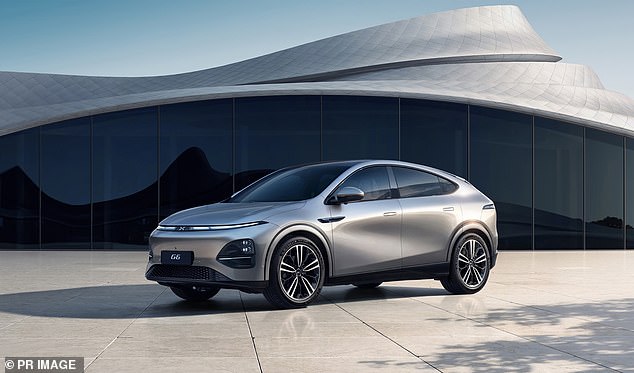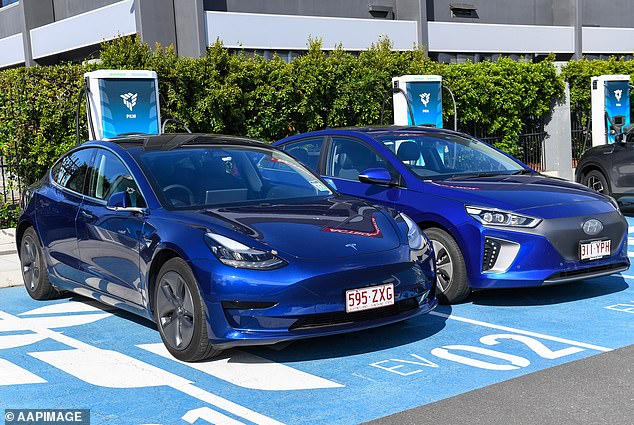Nissan could face collapse within the next 12 months
Carmaker Nissan could face a collapse within the next 12 months as Chinese carmakers increasingly dominate global markets including Australia.
The Japanese car company, which employs 195 people in Australia, 7,000 in Britain and 17,000 in the US, has embarked on a massive cost-cutting program after heavy losses.
CEO Makoto Uchida will take a 50 percent pay cut, and now it has been reported that Chief Financial Officer Stephen Ma is stepping down.
However, insiders fear these steps may not be enough as Nissan struggles to stay competitive with its Chinese rivals.
“The source of the problems stems from a wave of cheaper EV alternatives from China that are flooding the global market and taking market share away from the Japanese company,” Forbes said.
The company risks accumulating its largest ever debt by 2026, with potential debt of as much as $5.6 billion, it has been suggested.
Mr Uchida said: “This is a lesson we have learned and we have failed to move with the times.
“We could not have anticipated that hybrid electric vehicles and plug-in hybrids would be so popular.”
The Financial Times quoted a ‘senior official’ at Nissan as saying: ‘We have 12 to 14 months to survive. This is going to be difficult. And ultimately we need Japan and the US to generate money.”
The boss of Nissan Australia has claimed some car brands will soon pack up and leave the country because the market is overcrowded.
In Australia, Nissan was the tenth most popular car brand in November, but the brand is facing pressure from Chinese competitors including BYD, Chery, MG and Polestar, with dozens more planned.
Nissan Oceania boss Andrew Humberstone previously said there would likely be 100 car brands in Australia within five years and this was almost double what the US and Britain had.
“It is not sustainable to have a hundred brands on the market within five years,” he tells Car Expert.
‘We are already at 69 or 70 and there are twelve more to come. They say within the next five years there will be a hundred brands in the country, which is a very, very complex market.
‘The business case doesn’t fly, simple. It doesn’t work.’
Mr Humberstone said Australians buying new cars, especially from non-established brands, risk being left behind if the business collapses.

Chinese brand Great Wall Motors (pictured Tank 300 model) has been selling cars in the country since 2009, but will soon be joined by a slew of new Chinese automakers

The XPeng G6 is among a range of electric vehicles set to flood the Australian market
He said car parts may no longer be available for specific models and residual resale values could plummet if the brand were no longer present in the country.
Mr Humberstone said Nissan had no plans to leave the country but was concerned about competition from new carmakers for sales.
‘We are a very strong brand. But actually, if you look at where we are, in terms of our market share, it raises a number of questions because we should arguably be in a better position.”
Brandon Wales, director of the US Cybersecurity and Infrastructure Security Agency, has also warned Australia to be wary of Chinese espionage due to the increasing use of vehicles from the country.
“It should – and deserves – a higher degree of scrutiny,” he told The Australian Financial Review.
National Senator Matt Canavan said China could not be trusted with electric vehicles if Chinese companies like Huawei were banned from installing the 5G mobile network.
“Given that we have banned China from building our 5G network, it seems strange to me that there is not more scrutiny on allowing China to control the vehicles we drive.
‘There are at least major risks in a 5G network, just like in a vehicle driving at a hundred kilometers per hour.’

EVs from little-known Chinese brands will compete with existing models from Tesla and Volvo
CHINESE CAR BRANDS ENTER AUSTRALIA AND COMPETE WITH NISSAN
Zeekr: The Chinese brand, with a name that stands for ‘zero, evolving, electric and krypton’, has promised to bring three electric cars to Australia by the end of 2025. The Zeekr X compact SUV will cost less than $60,000 and is expected in October. .
Geely: The Chinese auto giant could turn heads when it launches its Radar electric car in Australia at the end of this year. The electric Toyota HiLux rival, called the Riddara R6 in other markets, could have a range of up to 571km.
XPeng: Three electric cars from the automaker are expected in Australia over the next three years, with the first model, the G6 SUV, due in October. Prices for the vehicle, which promises to reach 100 km/h in 6.2 seconds, will be announced in September.
Aion: The electric arm of carmaker GAC, or Guangzhou Automobile Group, has committed to launching a battery-powered hatchback in 2025, similar in size to a Toyota Corolla.
Jaecoo: Jaecoo, a luxury spin-off of the Chery brand, is expected to bring a mid-size SUV, the J7, to Australia this year. The vehicle has styling similar to a Range Rover and will be available in two-wheel and four-wheel drive.
Jump Motor: Expect to see two cars from this Chinese brand in Australia by the end of 2024. The mid-sized SUV C10 and the small car T03, also called mini car, will announce their arrival.
Skywell: A competitively priced SUV is expected from this brand in 2024. Known abroad as the Skywell ET5, it will be sold locally as the EVA 5 and promises a range of up to 300 miles (489 km) and a price of less than $50,000.
